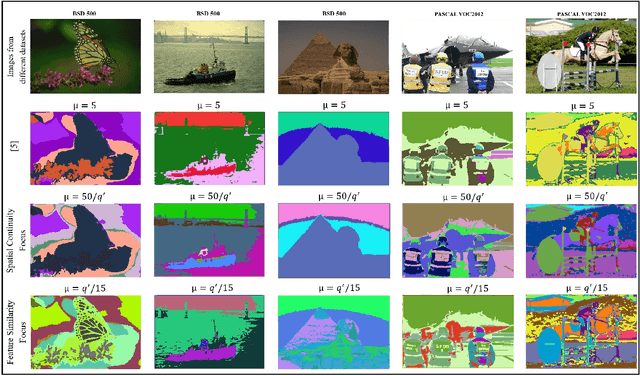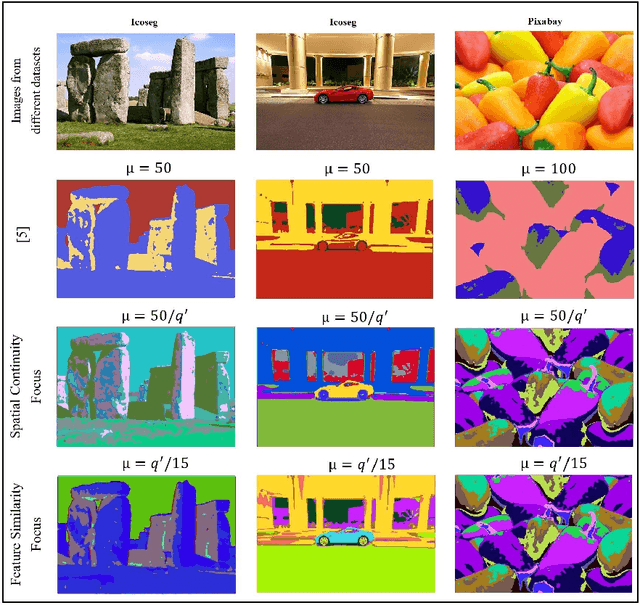Boujemaa Guermazi
DynaSeg: A Deep Dynamic Fusion Method for Unsupervised Image Segmentation Incorporating Feature Similarity and Spatial Continuity
May 09, 2024Abstract:Our work tackles the fundamental challenge of image segmentation in computer vision, which is crucial for diverse applications. While supervised methods demonstrate proficiency, their reliance on extensive pixel-level annotations limits scalability. In response to this challenge, we present an enhanced unsupervised Convolutional Neural Network (CNN)-based algorithm called DynaSeg. Unlike traditional approaches that rely on a fixed weight factor to balance feature similarity and spatial continuity, requiring manual adjustments, our novel, dynamic weighting scheme automates parameter tuning, adapting flexibly to image details. We also introduce the novel concept of a Silhouette Score Phase that addresses the challenge of dynamic clustering during iterations. Additionally, our methodology integrates both CNN-based and pre-trained ResNet feature extraction, offering a comprehensive and adaptable approach. We achieve state-of-the-art results on diverse datasets, with a notable 12.2% and 14.12% mIOU improvement compared to the current benchmarks on COCO-All and COCO-Stuff, respectively. The proposed approach unlocks the potential for unsupervised image segmentation and addresses scalability concerns in real-world scenarios by obviating the need for meticulous parameter tuning.
A Dynamically Weighted Loss Function for Unsupervised Image Segmentation
Mar 17, 2024



Abstract:Image segmentation is the foundation of several computer vision tasks, where pixel-wise knowledge is a prerequisite for achieving the desired target. Deep learning has shown promising performance in supervised image segmentation. However, supervised segmentation algorithms require a massive amount of data annotated at a pixel level, thus limiting their applicability and scalability. Therefore, there is a need to invest in unsupervised learning for segmentation. This work presents an improved version of an unsupervised Convolutional Neural Network (CNN) based algorithm that uses a constant weight factor to balance between the segmentation criteria of feature similarity and spatial continuity, and it requires continuous manual adjustment of parameters depending on the degree of detail in the image and the dataset. In contrast, we propose a novel dynamic weighting scheme that leads to a flexible update of the parameters and an automatic tuning of the balancing weight between the two criteria above to bring out the details in the images in a genuinely unsupervised manner. We present quantitative and qualitative results on four datasets, which show that the proposed scheme outperforms the current unsupervised segmentation approaches without requiring manual adjustment.
 Add to Chrome
Add to Chrome Add to Firefox
Add to Firefox Add to Edge
Add to Edge